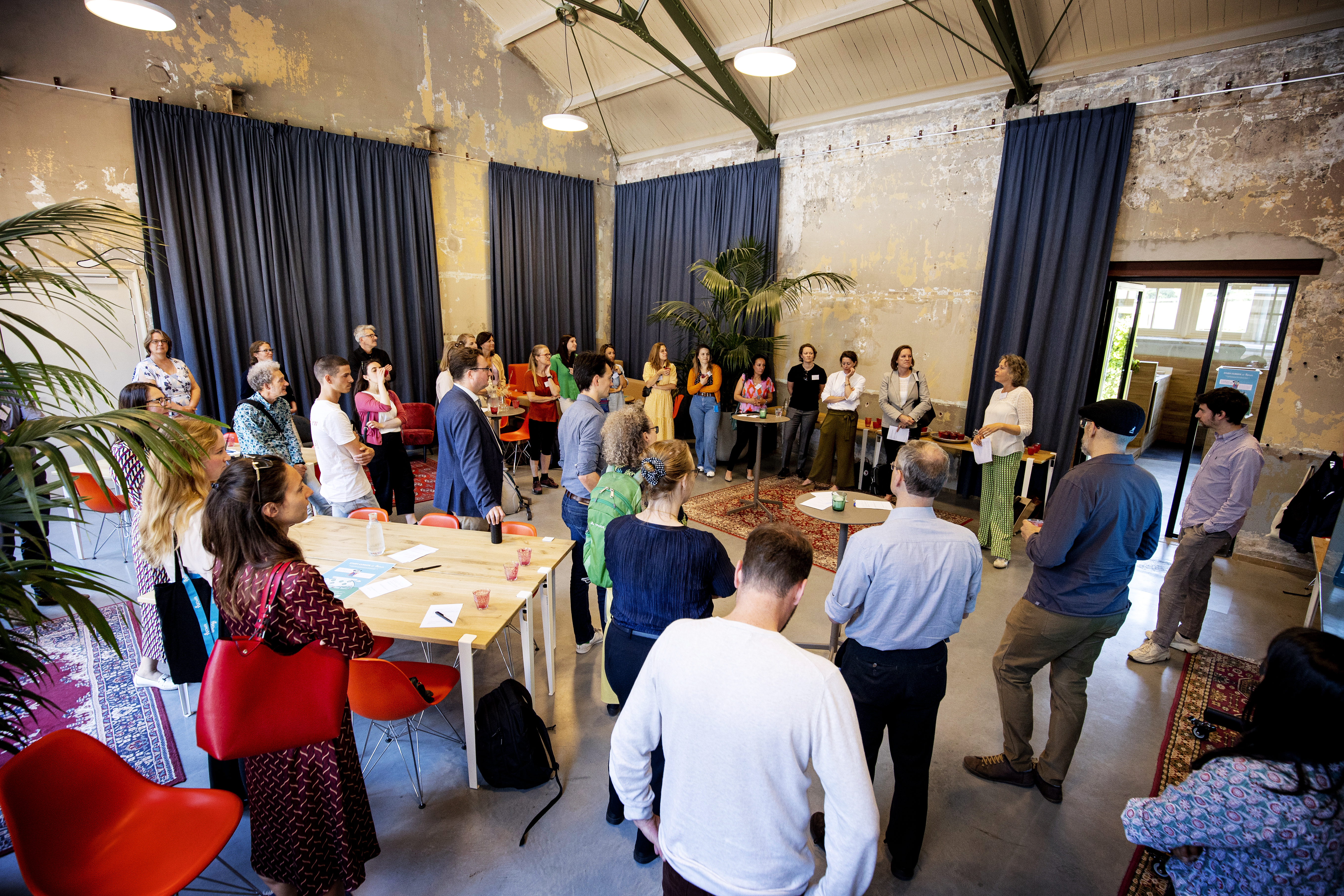On June 3rd, the Study Climate Tribe Session in it's first in-person event, under the theme of 'INCLUSION' took place at the Vakwerkhuis. Over a lunch session employees and students were able to network and connect with likeminded people and participate in workshops all centred around the theme of Diversity and Inclusion at TU Delft.
The workshops
“Why learn Dutch?” - Online Dutch course – A warm welcome to TU Delft for MSc ‘s
By Astrid van Laar
In this workshop, we discuss the role of Dutch language when it comes to integrating and including internationals. Which words do you think are most important when having a conversation? How can you engage in conversation with someone who has learned 300 Dutch words? What are some do’s and don'ts to take into mind?
- To know more about Astrid, read this article in the Educator: Astrid van Laar - “There’s no subtitles at the supermarket”
- Also watch the promotional video of the online Dutch course
“Vulnerable conversations about identity as a movement at TUD” - SG in Conversation
By Loek Hendriks
This year, Studium Generale set up a programme series around the topic of identity. During five nights this year, students and other enthusiasts started a conversation with young pioneers about important themes in the lives of these individuals. What did we learn from Dutch Turkish writer Lale Gül about her experiences with religion? How does journalist Milou Deelen put her feminist ideology into practice?
In this session, SG shares their experiences of organising events around diversity and invite you to reflect on how to extend these activities into a campus-wide narrative.
- To know more about SG in conversation, go to: New Series by Studium Generale SG in Conversation
“Education for everyone, co-created by everyone” - Open Education, TUD Library
By Michiel De Jong
Open Education is an approach to teaching that is focused on building courses around Open Educational Resources (OERs). These OERs are materials that are available on open platforms, for anyone to access, reuse and adapt to their own teaching and learning, free of charge. This approach has strong potential to improve the accessibility of courses by providing easy and permanent access to the materials they need to learn; and to make courses more inclusive for students from different social-economic backgrounds because they are cost-free.
In this session, we engage in a discussion with you about the potential of the Open Education Approach to improve student engagement and inclusiveness. Where is the biggest potential for using Open Educational Resources? Where is it already happening? And what is required to apply this in a meaningful way?
"How to break social bubbles and connect students from different backgrounds" – A student’s perspective
By Yasir Aydemir
TU Delft strives for a diverse student population. There are initiatives going on to attract more female students and people from disadvantaged neighbourhoods to study here. However, it does not stop with just attracting these students. It is also important to ensure that they are integrated and can become part of a culturally diverse and cohesive TU Delft campus life.
In this interactive session, we share a student’s perspective on diversity and inclusion. We will collectively think about how we can break the (homogenous) social bubbles students are in and how we can connect students from different backgrounds.



